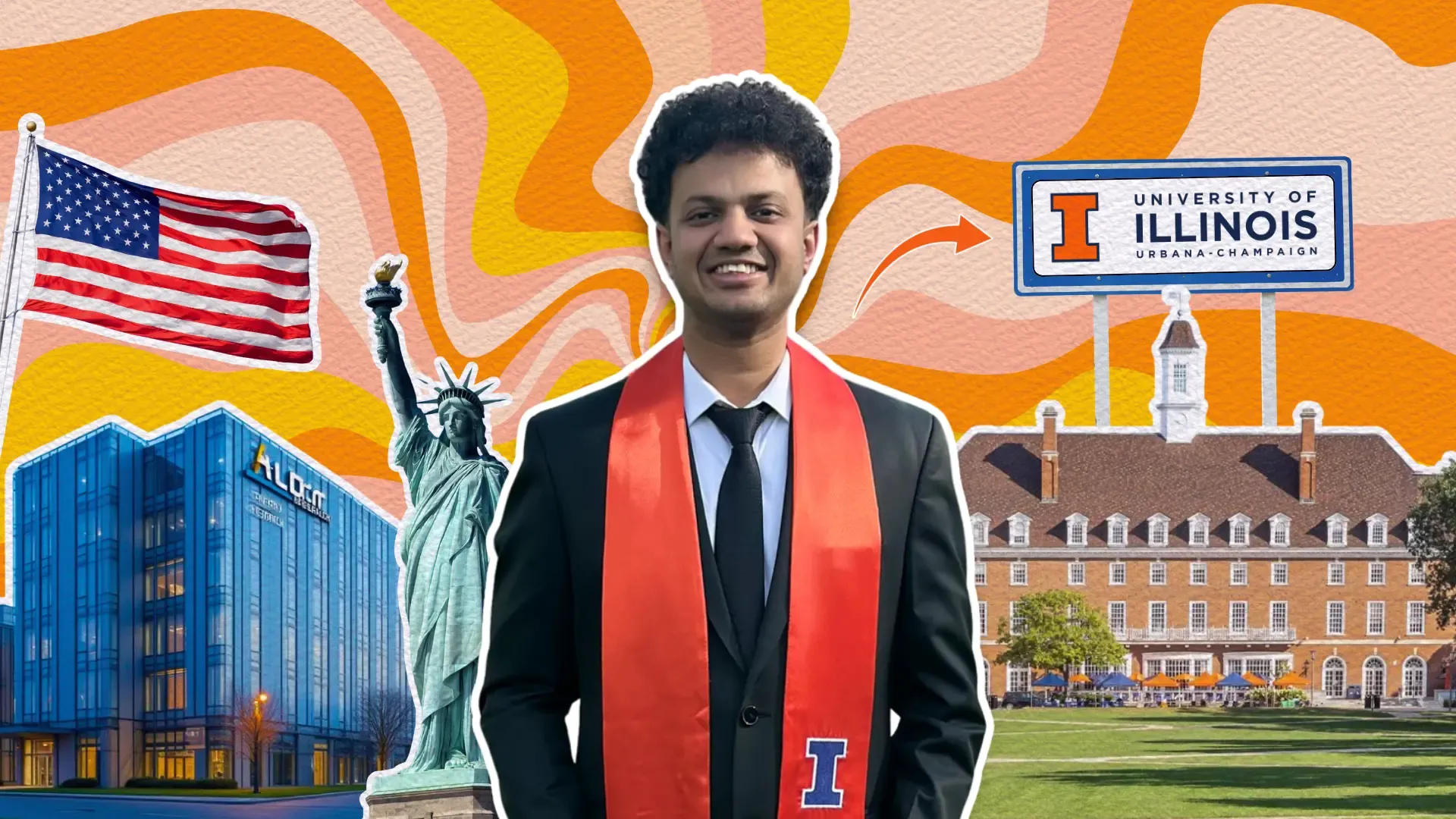Student Reviews
AI and Young Talent Driving the Energy Transition

In our "Indian Engineers in Silicon Valley" series, we chat with Atharva Rajadnya, an Energy Modelling Analyst working at Aurora Energy Research, specializing in power market forecasting in the United States. With a Chemical Engineering degree from IIT Madras and a Master’s in Energy Systems Engineering from the University of Illinois at Urbana-Champaign, Atharva talks about working in the energy industry and why it is an emerging field.
Q. Tell us about your background.
I’m originally from Pune, India. I completed my undergraduate degree in Chemical Engineering at IIT Madras. After that, I worked for approximately 10 months at Sterlite, a company that manufactures optical fiber, which was closely aligned with my background in chemical engineering. I eventually pursued my master’s in Energy Systems Engineering because I knew I wanted to work in the energy sector, particularly renewable energy.
Q. Why did you want to study abroad?
When I was at IIT, I noticed that many people were trying to transition into non-core sectors, such as finance and consulting, which aren’t primarily focused on engineering itself. I really wanted to do something technical, something that aligned with my degree. It’s a field that’s booming in places like Europe and the US, and India is only slowly catching up. I wanted to stay ahead of the curve, and the US was my best option.

Q. Can you elaborate on why you think the energy sector is booming in the US?
The previous government had initiatives to produce more clean and green energy. Even the current Government wants to boost drilling to meet the increasing demand. There are numerous initiatives for renewables, including tax credits and incentives, to support the construction of more facilities and meet increasing demand. A significant amount of funds is being invested in going green, resulting in the creation of more companies in this space. Even sectors like Bitcoin mining require data centers, which are being built at an unprecedented scale in the US.
Q. Could you tell us about your current work, what sector you’re in, and what your role contributes?
In the US, electricity markets are privatized, meaning individual companies or power plants generate electricity and sell it to a grid operator, who then sets prices for these transactions on the wholesale side. I work on power market forecasting, developing algorithms to predict electricity prices across different regions of the grid while accounting for demand, supply, and transmission constraints. Our team’s forecasts help energy companies and investors evaluate projects and make informed investment decisions.
Q. Tell us about your master’s education in the US?
I wanted a technical program with an economic component, one that involved optimizing across energy regions or systems. Coming to academics here, I’d say that undergraduate studies in India are much more intense than graduate programs. Everyone around you is brilliant, and you’re constantly comparing yourself. We also had relative grading, which introduces a somewhat toxic element to the environment.
In contrast, I found my master’s program in the US to be more focused on actual learning. It wasn’t about just scoring well; it was about understanding the subject deeply. The coursework was heavy on assignments and projects, and relatively light on exams. Many of my courses didn’t even have a final exam—just a final project and presentation. Although it didn’t feel as “tough” in the traditional academic sense, I felt that I learned a lot more.
Q. How did you land your job?
I completed an internship over the summer that continued into the following semester. They offered me a full-time position as well, so in that sense, I wasn’t under too much pressure. So I started looking elsewhere. Because this is such a niche field, my options were somewhat limited, but that worked both for and against me. While there weren’t a ton of roles, there were also very few people with my specialization, so wherever I applied, I was getting a decent number of callbacks. Not 100%, of course, but significantly better than what many of my friends in other fields were seeing at the time.
Q. Did your niche interest give you an advantage?
Yes, absolutely. In fact, that was one of the most significant advantages I had. When companies in the US hire international candidates, they’re often looking for individuals who bring something unique or specialized to the table. For example, if you do a very general data science degree, it can be harder to stand out because there are so many people with that background. But in a niche field, you’re naturally in a smaller, more specialized pool, which makes you more visible. Employers here also really value technical skills, especially in areas where there’s a talent shortage. I’ve noticed they appreciate the strong math and quantitative background that many of us coming from India have.

Q. What do you like most about working in the US?
When I joined, the average age in the office was around 25 or 26, so it’s a very young team overall. So it’s not what you’d call a traditionally hierarchical environment. Although my company is well-established, it still has a young start-up vibe. That means things can be a bit chaotic at times, typical of a young, growing operation, but it also makes it a great place to learn. It feels quite informal and friendly, almost like going to school with a group of friends. There’s no strict dress code at all (and it's Texas, so it gets really hot); people often just show up in shorts or casual attire.
Q. What advice would you give to engineers who are trying to break into your field?
My biggest advice would be to plan far ahead. You really have to think in terms of a 2–3 year timeline and, most importantly, make a backup plan. Energy is a booming field, and I’d strongly encourage people to explore it. What makes it even more rewarding is that you feel like you’re contributing to something meaningful, working on solutions to climate and environmental issues, and actively supporting the transition to green energy. The field is also very broad. You can enter through a range of pathways, not just engineering. There are roles in policy, legal, economics, technical R&D, modeling, and even business strategy. So, depending on your background and interests, you can build on your strengths and still find your place here.



